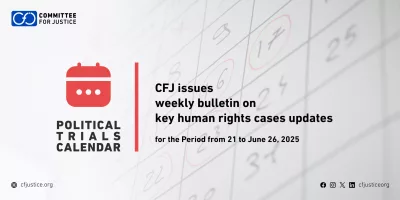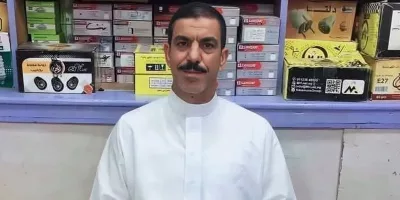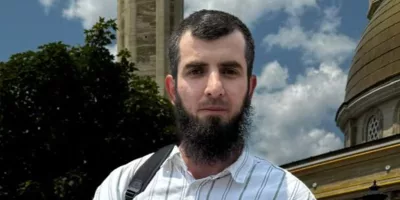We call on the Human rights Council to intervene immediately
Committee for Justice calls on the international community to take action and to activate independent mechanisms in order to open an immediate investigation into the death of former Egyptian President Mohamed Morsi, as such death has likely resulted from the gross medical negligence he faced throughout the entire period of his solitary confinement since July 2013.
Committee for Justice expresses its deep concern regarding the fate of the thousands arbitrarily detained in Egyptian prisons. This comes in view of what it has documented of systematic policies of slow murder through deliberate medical negligence, which has impacted many prisoners in Egypt, specially those detained pending political trials since 2013.
CFJ has repeatedly warned, along with many others, of the consequences of the continuation of such policies of slow murder adopted by the Egyptian authorities against those arbitrarily detained. Those policies take place through medical negligence and murder by refraining from providing proper medical and health care besides the solitary confinement and physical and physiological torture. This has directly led to the death of no less than 900 prisoners and detainees as per our documentation covering the period between July 2013 till May 2019.
According to CFJ’s documented information regarding the health condition of the former President Mohamed Morsi, we could be facing a case of extrajudicial killing where the Egyptian authorities exercised clear reprisal procedures. This occurred through solitary confinement, isolation from the outside world, refrainment from providing medication and necessary treatment in the absence of a fair trial. This is evident by the repeated accusations by him, as well as his family, of the authorities attempting to murder him, as per one of his statements in previous court hearings.
Morsi had spoken to the court in several hearings, the latest being 17 June 2019, where minutes before his death he mentioned that he was prevented from receiving medical treatment, and that he was facing a deliberate death by the hands of Egyptian authorities. He added that his health condition was deteriorating, and that he had fainted in the past week more than once without receiving any medication or emergency treatment. He then asked the court to allow him to meet his attorney, whom he hadn’t met for the previous three years. His request was harshly received by the court, which muted his microphone and prevented him from continuing to speak. Minutes later he fell to the ground, dying shortly afterwards.
Therefore, we are urgently drawing attention to the gravity of the situation of many prisoners who suffer from severe medical negligence that could lead to their death, similar to what happened with Morsi. This comes in line with the information we currently have about the health status of former presidential candidate and head of “Masr Al Qaweyya” Party Abdelmoneim Aboulfotouh, as well as hundreds with similar deteriorating health condition. This situation prompts us to put everyone in their legal and humanitarian responsibility in the face of thousands of political detainees that are facing slow murder.
The medical neglect affecting numerous detainees including Aboulfotuh, the former head of Alexandria Judges club Mahmoud Al-khodeiry, former minister of local development Mohamed Ali Beshr, the leader of “freedom and Justice” party Mohamed Albeltagi, political activist Ahmed Douma, former head of the parliament Saad Al-Katatni, the former head of housing committee in the parliament Ibrahim Abu Auf, the leader in the Muslim brotherhood Eid Dahroug, former member of the Journalists syndicate Magdy Hussein, rights activist Ibrahim Metwally, member of the presidential team of 2012 Essam Al-Haddad and his son Gihad, as well as thousands of similar cases in different prisons across Egypt push us to take action before it is too late.
Ahmed Mefreh, the CEO of Committee of Justice said: “The information we have confirms that the prisons sector in Egypt was given strict orders from the interior minister Major General Mahmoud Tawfik , previous head of the national security apparatus, to completely ignore any requests coming from detained Egyptian heads of opposition, those suffering from chronic or serious diseases, for treatment in the prison’s hospital or at their own expenses in external hospitals, in addition to disallowing any receival of medication through their relatives”.
“Rule 24 of the Mandela Rules (the UN Standard Minimum Rules for the Treatment of Prisoners) states the following: ‘The provision of health care for prisoners is a State responsibility. Prisoners should enjoy the same standards of health care that are available in the community, and should have access to necessary health-care services free of charge without discrimination on the grounds of their legal status.’
Also “Mandela Rule 27 states that ‘All prisons shall ensure prompt access to medical attention in urgent cases. Prisoners who require specialized treatment or surgery shall be transferred to specialized institutions or to civil hospitals. Where a prison service has its own hospital facilities, they shall be adequately staffed and equipped to provide prisoners referred to them with appropriate treatment and care.’
The Egyptian Constitution sets the obligation to treat a prisoner properly in a way that safeguards his dignity and allows for preventing any physical or phycological harm. It stresses that his detention and imprisonment should only take place in a humane and healthy setting. It also emphasizes the right of every citizen to health and medical care, and criminalizes abstaining from providing treatment, in its various forms, to a person in a case of emergency or risk to life. Also, the Egyptian law has established health and nutrition requirements to ensure the health of prisoners. It also laid down a framework of duties imposed on the prison doctor. It is clear that none of these regulations were respected as evident by the harsh reality and dire medical negligence facing detainees in Egyptian prisons.
We hereby launch the campaign “Stop the slow murder” in Egyptian prisons, as a novel rights call, that calls across the next few weeks for the release of those inside the Egyptian prisons, starting with the immediate release on medical grounds for the elderly and those with chronic deteriorating medical conditions.
Committee for Justice calls on the Human rights Council to adopt this campaign and to urgently interfere to resolve the escalating human rights crisis inside Egyptian prisons. Such step is needed in view of the complete shut down of all the paths of dialogue by the Egyptian authorities, as an attempt towards legal empowerment and rectification of the situation.






